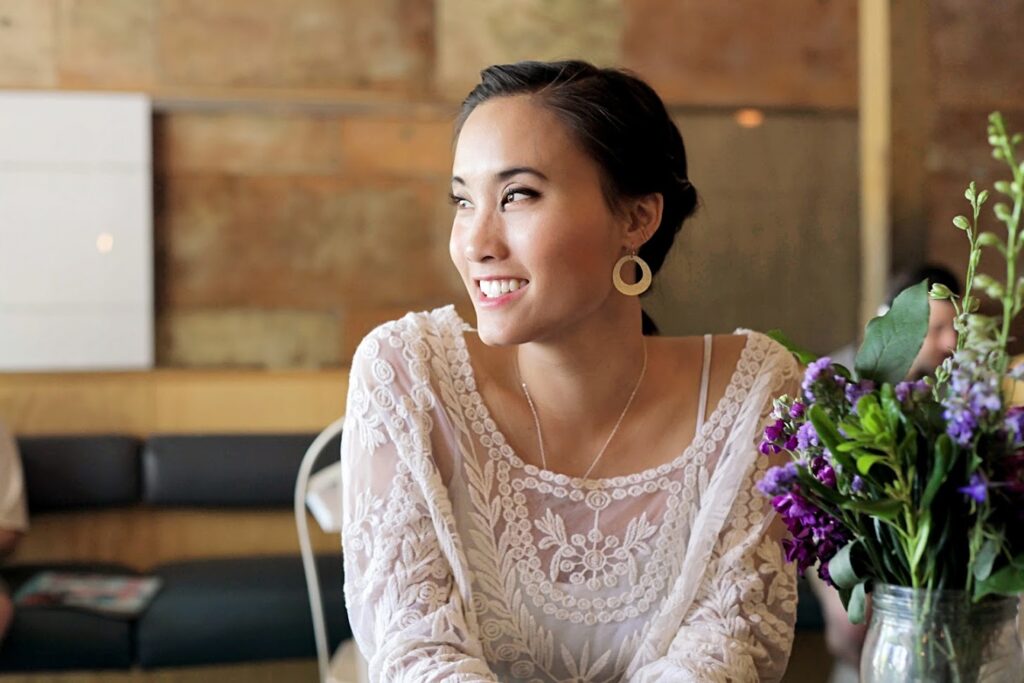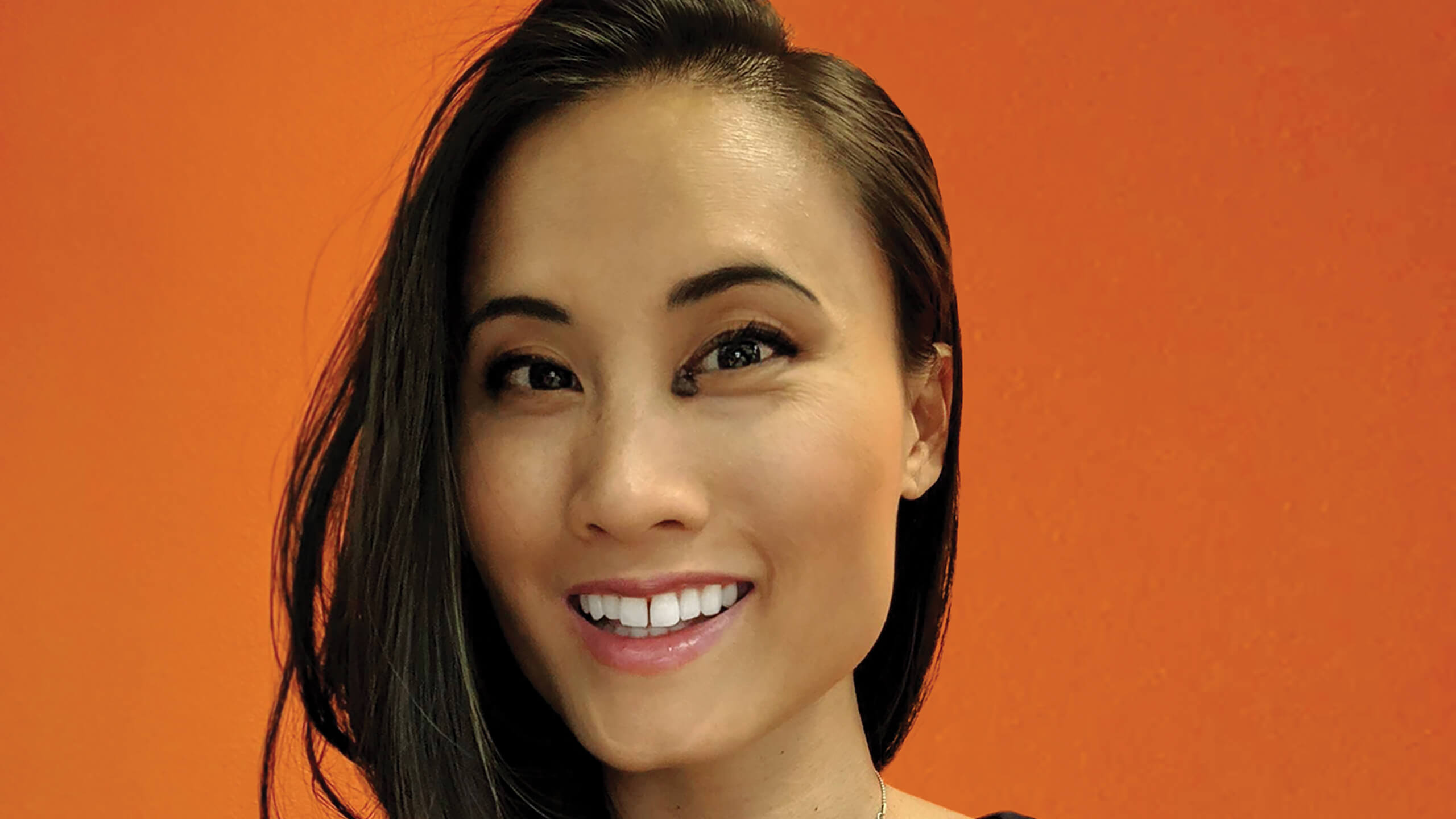An Interview with Kat Mische Elle
Ranked No. 4 coworking space in the U.S. by Inc.com, CO+HOOTS currently houses more than 1000 scaling entrepreneurs and small businesses across two Arizona cities, was the first coworking space in Phoenix and has been an integral role in creating thousands of jobs locally.
Jenny serves as an advisor for numerous startups, Board Chair of CO+HOOTS Foundation (a 501c3 nonprofit) and as a mentor for several young entrepreneurs. Jenny was named Phoenix Business Journal’s 2016 Phoenix Businessperson of the Year. The first minority and the first woman to receive the honor.
Describe your upbringing and what inspired you to become an entrepreneur?
I’m the daughter of refugees. My parents were refugees from Vietnam during the Vietnam War. I grew up in a small restaurant that my parents started before I was born. They told me never to become an entrepreneur because it was the hardest thing they have ever done and didn’t want that level of struggle and instability for me.
These are the key things that have informed my journey in entrepreneurship. I became an entrepreneur whose life’s work is focused on helping underrepresented entrepreneurs grow and thrive in business. It is my life’s mission to make our communities more equitable and accessible so people like my parents, who decided to make the leap into entrepreneurship, have the best chance of success.
In 2008 I was the art director for various publications at the Arizona Republic. When the recession hit, all of the publications I was working on closed and I lost my job. That was when I realized having a job can be just as unstable as being an entrepreneur. So, I started my marketing agency and made the lead to becoming an entrepreneur. I quickly realized that I didn’t know what I was doing other than some of the basics I had picked up from my parents. I didn’t know how to run or grow a business. I could make a profit-loss statement, but I didn’t know how to manage people. I needed guidance and people to help me navigate the journey. This is why I started CO+HOOTS, the first coworking space and entrepreneur center in Phoenix. Today we serve over a thousand businesses as a safe space where people of all backgrounds can feel find help in growing their businesses. We have two locations focusing on incubation, entrepreneurship, training, and programming and serve thousands of people annually.
What was it like starting CO+HOOTS, and how did HUUB come about?
When a recession happens, swarms of people become entrepreneurs out of necessity. The mass layoffs often result in a surge of new businesses created because they have to build their own income. I happened to have launched CO+HOOTS during the last recession because I was one of those people who lost my job. It started with just a couple of us entrepreneurs in a room and quickly became five. Then five became 12, 12 became 25, 24 became hundreds and suddenly (and not suddenly) we were not just a coworking space but an entrepreneurship center. We launched incubation programming. We created an entrepreneurship program in partnership with Benedictine University, where we help students build an entrepreneur mindset and launch startups during their time at the university.
As we dug deeper into building entrepreneur ecosystems, we saw a real alignment with local governments who shared our mission around building equity in our communities. The pandemic exacerbated the wealth gap and we saw an outrageous number of businesses struggling at unprecedented numbers. And the government wanted to play a role in the recovery. So in 2020 we launched HUUB a digital platform built to help municipalities and entire communities deliver grants, trainings, 1:1 assistance and connections to business owners and, as a result, see their most marginalized communities build wealth.
HUUB is a digital platform that helps create access to all resources that entrepreneurs need and includes tools to help economic developers engage their community while producing data to make better decisions about how they serve their community. The platform is free to all businesses and accessible to anyone with a cell signal or internet connection. We bring together government resources, with partner organizations programs, tapping into funding mechanisms, training, connecting to expert advisors, and expanding networks and other resources for all, especially underrepresented entrepreneurs. Today, we serve more than 3,000 businesses across Arizona and are expanding nationally.
Jenny, can you paint us a picture of your childhood, your parent’s story, and how their story helped you write your story?
I am the middle child, with an older brother, and younger sister. We grew up in the suburban town of Eden Prairie, Minnesota. While we grew up around a lot of middle class families, we functioned very differently than my peers. After school, I didn’t go home and play video games, we were often shuttled to the restaurant to help and do homework.
It was a small Chinese-Vietnamese restaurant called Camdi, named after my fireball of a mother. We would go there every day after school and spend our time in a little room in the basement where big bags of rice and packaged goods were stored. It was our playroom, homework room, and space to take a quick nap when we were tired. As we got older, we would work at the restaurant, prepping, washing dishes, serving, and clearing tables.
As we grew up, many decisions were made based on the needs of the restaurant. We knew we had to stay close to home to support the business. When my peers were touring colleges all around the country, I knew I had one option and that was the university near the restaurant. Eventually, my parents did try to grow their businesses. They tried to launch two more locations but had to close them because they didn’t have the management experience to sustain them. The failure of those two restaurants caused my parents to build a lot of debt and resulted in them working a lot longer than they really needed to, all things that could have been avoided with the right network and people guiding them.
Because of my parent’s backgrounds as refugees and the lack of systems that could support them, they were destined for small business ownership. They had very little luck being employed at jobs that were above minimum wage. My parents started the restaurant in the 1970s with my mom leading the idea while my dad worked in corporate America. At this time, women were not legally allowed to have a business checking account.
My mom knew she couldn’t get a loan. So she negotiated with the previous owner to buy the business as a lease-to-own agreement and take over the business. This helped her avoid dealing with a bank loan that she likely wouldn’t be approved for. My parents ran the business for 40 years.
My mom is a fireball. People would often comment – “We have no idea how she can run the kitchen, clean dishes, operate the entire business, and serve the number of customers she serves. How does she do that?” Well, it’s with a lot of systems and processes she’s developed to make sure she is as efficient as possible. She preps well, so she can easily turn out the dishes quickly which is where I think I got my obsession with automating processes with technology. My parents did everything themselves; while they never were rich, they were successful enough to put their three kids through school, and they retired last year.
Who in your life inspires you to stay focused on progress for the future?
You can probably guess this, but my mom of course. She is a fiery spirit. She was adopted as a child in Vietnam, and she grew up in a pretty poor family. She’s just scrappy and sharp as a knife. She would bike to the next town over, buy the bread that was yesterday’s bread at half price, and then bike back into Saigon to sell the bread at regular price. She always figured it out. And I think that kind of mentality has rubbed off on me and is such a gift as an entrepreneur – knowing that everything is figure-out-able.
What changes in entrepreneurship would you like to see?
I’ve seen how access to networks and better understanding of money dynamics can change the trajectory of small businesses and shrink the wealth gap. My mom had to build her network from nothing. Coming here not knowing the language, not having any connections or money, and still being able to build what she built is a huge accomplishment. Yet, I often think, how far could she have gone if she had known about these other existing resources?
I think about our relationship with money as it is relating to owning a building. They rented their building for 40 years and paid rent yearly to a person who got rich from them. If you calculate how much they had paid in rent, utilities, and additional expenses, they could have bought the entire building twice over. Knowing this drives my work with HUUB and CO+HOOTS to help business owners understand the mechanisms they can use to build wealth.

How did knowing your parents could have bought the building their restaurant was in affect you?
When you rent, you pay an extra fee. When you own, you pay a mortgage and have an asset. Buying a building is the same mental process as owning a home.
I had a good friend sit me down and explained to me, “You can do this. You have enough to show that you can do this. Different kinds of loans allow you to qualify to buy this building. It’s not going to be easy, but you can qualify. You also have been in business, you are a woman and own a minority-owned business – banks want to fund projects like this. You have a proven record.” I still was really scared.
I came from a place where we had very little growing up and was told only the rich could afford to buy buildings. So that was the lens I saw the world through. I would never be able to afford to own a building. That all changed when I met a financial advisor who walked me through how to create a livelihood for ourselves, our community, and our children through building ownership and a stable business. He broke down the numbers and helped me plan how I could afford the loan and what it would mean for me, my business, and my work. And it was so simple! I didn’t realize that it was possible, but it was, and it was a game-changer.
Now through HUUB, I can give every business owner that gift of a connection to a person who can change your business and life forever. I advocate a lot around entrepreneur education and expanding networks, because someone was kind enough, and had the patience to help me thrive.
How do aspiring entrepreneurs find you and the HUUB’s website?
www.joinhuub.com – it is the access to our government platform for business owners, free in every city where it exists.
LinkedIn, Instagram, Facebook & Twitter








